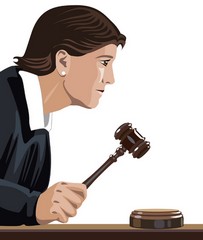A landlord shared with us a story about his recent court case for unpaid rent and damages against his tenant who ran out early. Among other things, this tenant chiseled his initials into the stone fireplace.
The landlord owned only the one property and he cared for it with great pride. So, he felt motivated to pursue this tenant, and with some diligence, was able to locate him. The landlord then hired a lawyer, paid a retainer and a court filing fee, and asked for a judgment for his losses.

The tenant contested the lawsuit, so the matter had to be scheduled for a short trial.
After hearing the evidence, and seeing the meticulous records from the landlord detailing the rent schedule and damages, the judge ruled in his favor and awarded him a judgment against the tenant. So what’s the problem?
“I’m sorry,” the judge explained. “I’d like to award you attorneys fees in this matter, but your lease doesn’t provide for it.”
That simple omission cost roughly $900.
In the landlord’s defense, attorneys fees provisions are not “standard” in any lease. Because the award of attorneys fees is regulated on the state level, what you can ask for ” and what you might get, varies. For that reason, some “standard” lease forms leave it out altogether.
Even if you have a “standard” attorneys fees provision, it may not be enforceable in your state. However, it is certainly not uncommon for the landlord and tenant to agree in the lease that the prevailing party in any lawsuit between them will be entitled to reimbursement of their attorneys fees.
So talk to your lawyer, and find out what your attorneys fees provision should state.
And while you are at it, ask your attorney about adding interest onto your claim for unpaid rent. You just may be entitled to that little bit of extra compensation as well.
 The tenant contested the lawsuit, so the matter had to be scheduled for a short trial.
The tenant contested the lawsuit, so the matter had to be scheduled for a short trial.














 Accessibility
Accessibility